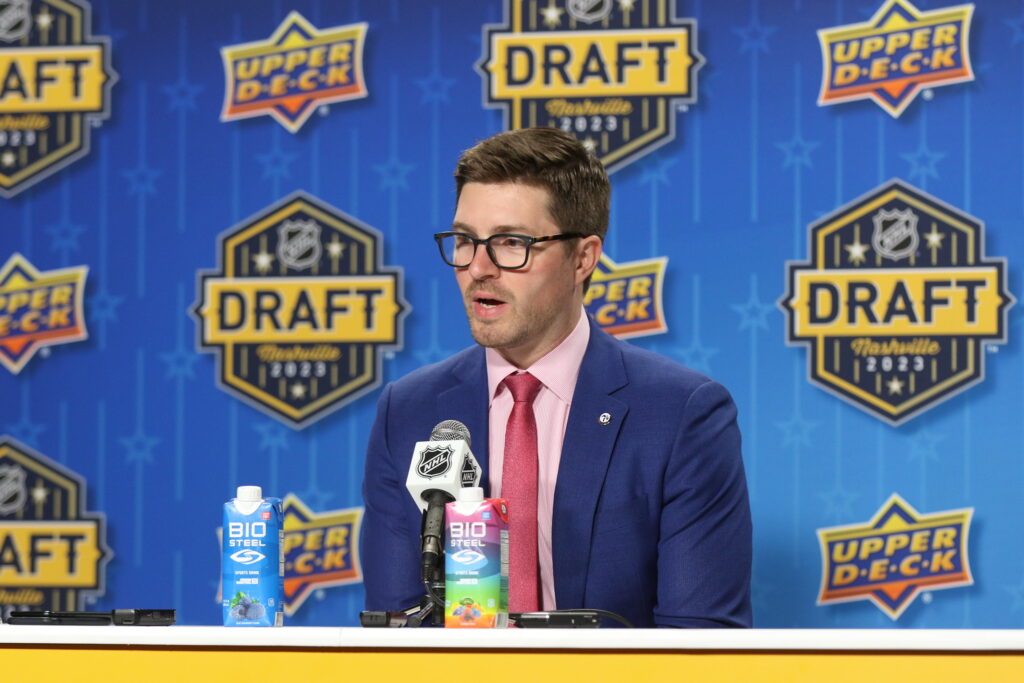In the high-stakes world of NHL management, true candor is a rare commodity. General managers, both active and former, often speak in carefully crafted platitudes, avoiding any statement that could be misconstrued or used as bulletin board material. But every so often, the veil is lifted. Recently, Kyle Dubas, the former general manager of the Toronto Maple Leafs and current President of Hockey Operations for the Pittsburgh Penguins, sat down for a revealing interview on the Cam and Strick podcast, offering a fascinating glimpse into his tumultuous tenure in the center of the hockey universe. For Leafs fans, it was a trip down a familiar, often frustrating, memory lane. For the rest of the hockey world, it was a masterclass in the pressures and complexities of managing one of the league’s most storied franchises.
The One That Got Away: A Haunting Regret
Every GM has a trade they wish they could take back. A move that, with the benefit of hindsight, looks like a colossal miscalculation. For Kyle Dubas, that move wasn’t a blockbuster deal for a superstar or a high-stakes draft pick that didn’t pan out. It was a seemingly minor trade that continues to gnaw at him. “I know you’re not supposed to look back,” Dubas confessed, “The biggest (regret) by far is actually Mason Marchment. By far. That one eats away and informs a lot of what we’ve tried to do since.”
On February 19, 2020, Dubas sent forward Mason Marchment to the Florida Panthers in exchange for Denis Malgin. At the time, the logic was sound, at least on the surface. The Leafs were looking for “some scoring punch” and a player with “some NHL pedigree.” Malgin, a former first-round pick, seemed to fit the bill. But as is so often the case in hockey, the best-laid plans can go awry. Malgin’s impact in Toronto was negligible, while Marchment, a late-blooming power forward, found his game in Florida, becoming a key contributor to their high-octane offense before signing a lucrative contract with the Dallas Stars.
Dubas’s admission is more than just a mea culpa; it’s a window into his evolution as a manager. The Marchment trade was a classic example of chasing a perceived need with a known commodity, at the expense of a player with untapped potential who was already in the system. It’s a mistake that has clearly informed his subsequent team-building philosophy, a constant reminder of the importance of patience and projection.
The Lamoriello Legacy: A Mentor in the Shadows
Before he was the boy-wonder GM, Kyle Dubas was the bright young assistant, learning at the feet of a hockey icon. His relationship with Lou Lamoriello, the legendary executive who served as Leafs GM from 2015 to 2018, was a formative experience. Dubas speaks of Lamoriello with a reverence that is palpable, crediting him as a “key mentor.” “We could talk forever about Lou and how great a mentor he was for me and how great our relationship still is and how close he is with my family,” Dubas shared. “He’s the best. That was a great experience. I leaned on him a lot.”
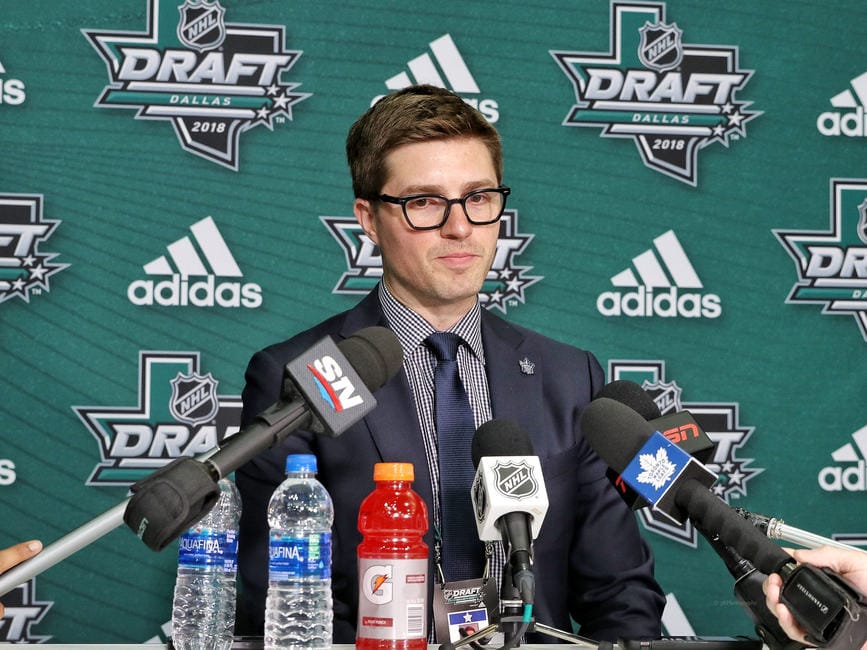
Dubas even revealed he nearly left the Leafs in 2017 to take the GM job with the Colorado Avalanche. It was Lamoriello who convinced him to stay, a decision that would ultimately pave the way for Dubas to take the reins in Toronto. The image of a 29-year-old Dubas, “scared s—less” in his first meeting with Lamoriello, is a powerful one. It underscores the immense pressure and the steep learning curve he faced. But under Lamoriello’s tutelage, Dubas was able to navigate those early years, absorbing the wisdom of a man who has seen it all in the hockey world. The lessons learned from Lou undoubtedly shaped the manager Dubas would become.
The Marner Dilemma: A Superstar’s Departure
The Mitch Marner era in Toronto was a rollercoaster of dazzling skill, contract controversy, and playoff heartbreak. His recent sign-and-trade to the Vegas Golden Knights marked the definitive end of that era, and Dubas, the man who signed Marner to his massive, and often criticized, contract, had nothing but well wishes for his former star. “Awesome person, wonderful player,” Dubas said of Marner. “I hope it works out well for everybody. I hope that it can galvanize the team and I hope that Mitch plays well in Vegas.”
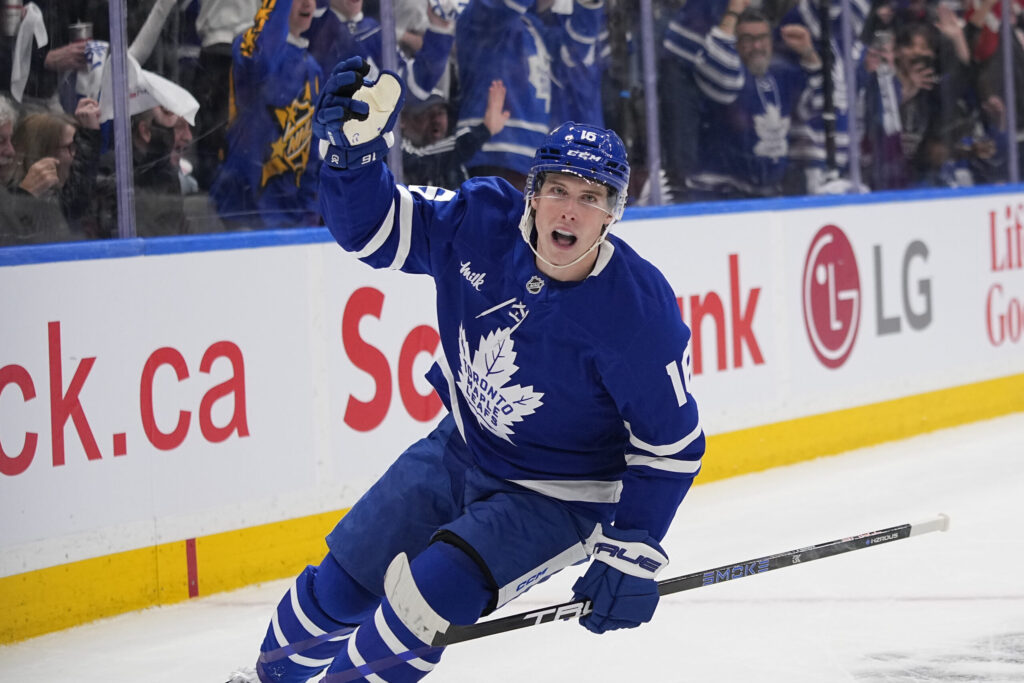
Dubas’s comments are diplomatic, as one would expect. But they also hint at a deeper understanding of the complexities of the situation. The pressure on the “Core Four” of Marner, Auston Matthews, John Tavares, and William Nylander was immense, and Marner, as the hometown kid, often bore the brunt of the criticism. A change of scenery may very well be what both Marner and the Leafs need to move forward. As Dubas noted, “we will look back on it in a number of years and have a better view of it.” For now, it’s another “what if” in the long and winding history of the Toronto Maple Leafs.
Also on the EDGE – How the Maple Leafs Are Finally Leaving the Core-4 Era Behind
The Crucible of Toronto: Pressure and Potential
It’s a common narrative: the pressure of playing in Toronto is too much for some players to handle. The media scrutiny, the passionate (and often impatient) fanbase, the weight of a 50-plus-year Stanley Cup drought – it’s a perfect storm of expectation and anxiety. But Dubas, for his part, doesn’t buy it. “I don’t think it’s because of the pressure of the marketplace or the fans,” he asserted. “That was my impression. Maybe the players would disagree, but I don’t think it was ever a factor to the group not reaching its potential.”
This is a significant statement. It pushes back against the easy excuse, the convenient narrative that lets the players off the hook. Dubas believes the team simply needed to “push through those moments,” to find a way to win when it mattered most. It’s a sentiment that will likely resonate with many Leafs fans, who have long argued that the team’s playoff failures were more about a lack of killer instinct than an inability to handle the bright lights of Scotiabank Arena.
The Salary Cap Conundrum: A Flat-Cap World
Of all the challenges Dubas faced in Toronto, none was more significant than the flat salary cap. The COVID-19 pandemic threw a wrench into the NHL’s economic landscape, and the Leafs, with their top-heavy roster, were hit particularly hard. “I think the thing that handcuffed it was the salary cap was flat,” Dubas admitted. “That’s life. No one could have predicted (the COVID impact) and we just had to adapt.”
The flat cap made it nearly impossible to augment the core of the team with high-impact players. Dubas was forced to bargain-bin shop for depth, with mixed results. While he did find some gems in the rough, the overall quality of the supporting cast was not enough in the playoffs. “After 2021, I thought we started to become much better at identifying what we needed to support the group and give the team a better chance,” Dubas reflected. But by then, it may have been too little, too late. The championship window, which had seemed so wide open just a few years earlier, was beginning to close.
The Babcock Chapter: A Tale of Two Coaches
Mike Babcock’s tenure as Leafs coach was a study in contrasts. He was brought in to instill a culture of accountability and professionalism, and in the early going, he did just that. Dubas acknowledged Babcock’s positive impact, noting that he “brought in a tremendous amount of accountability, a tremendous amount of detail, and his work ethic and what he was willing to put in to be prepared, was … I still haven’t seen anything quite like it.”
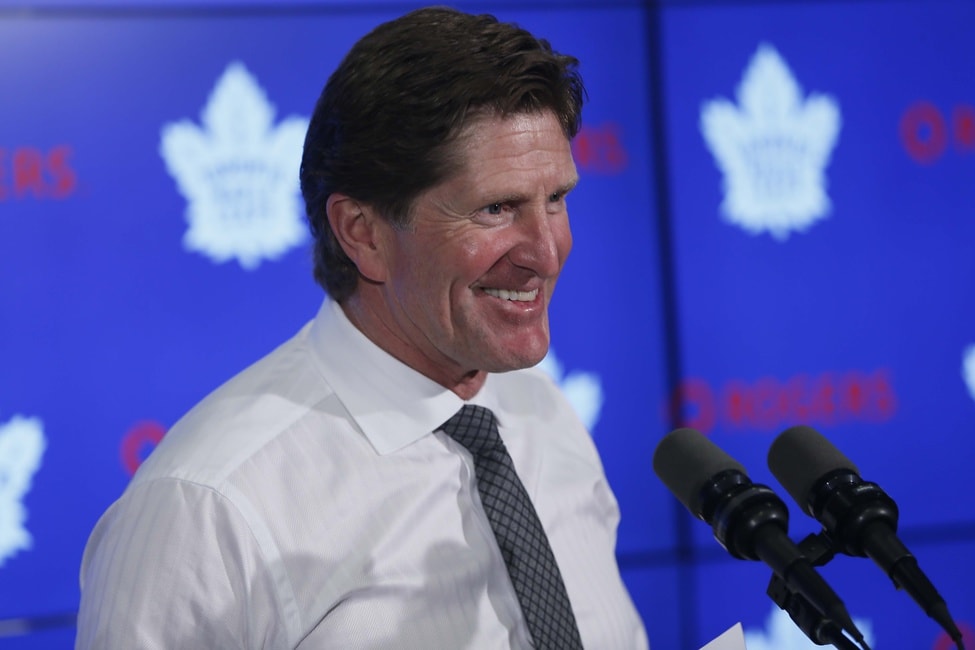
But the Babcock magic eventually wore off. His old-school methods clashed with the new-school sensibilities of the Leafs’ young stars, and the team’s performance stagnated. Dubas’s decision to fire Babcock in November 2019 was a turning point. “It just became clear that the group wasn’t going to take the next steps with him,” Dubas explained. “It was clear we were going to have to try to find another voice to push us ahead.”
Of course, no discussion of the Babcock era is complete without mentioning the infamous work-ethic list incident involving Mitch Marner. Dubas, for his part, claims he was unaware of the incident until after Babcock was fired. “Lou (Lamoriello) was the GM,” Dubas stated. “Nobody else with the team really knew that. Lou handled it with Mike.” This revelation is a testament to Lamoriello’s ability to keep things in-house, but it also raises questions about the flow of information within the Leafs’ front office at the time.
Also on the EDGE – Which Maple Leafs Will Answer the Bell in the Post-Marner Era?
The Rise of a Superstar: Auston Matthews’s Evolution
Through all the ups and downs of the Dubas era, one constant was the brilliance of Auston Matthews. The American-born sniper evolved from a pure goal-scorer into a dominant two-way force, and Dubas had a front-row seat for the transformation. “You’ve seen the evolution as a leader and the evolution on the defensive side as well,” Dubas remarked. “Everyone knows about the goal scoring.”
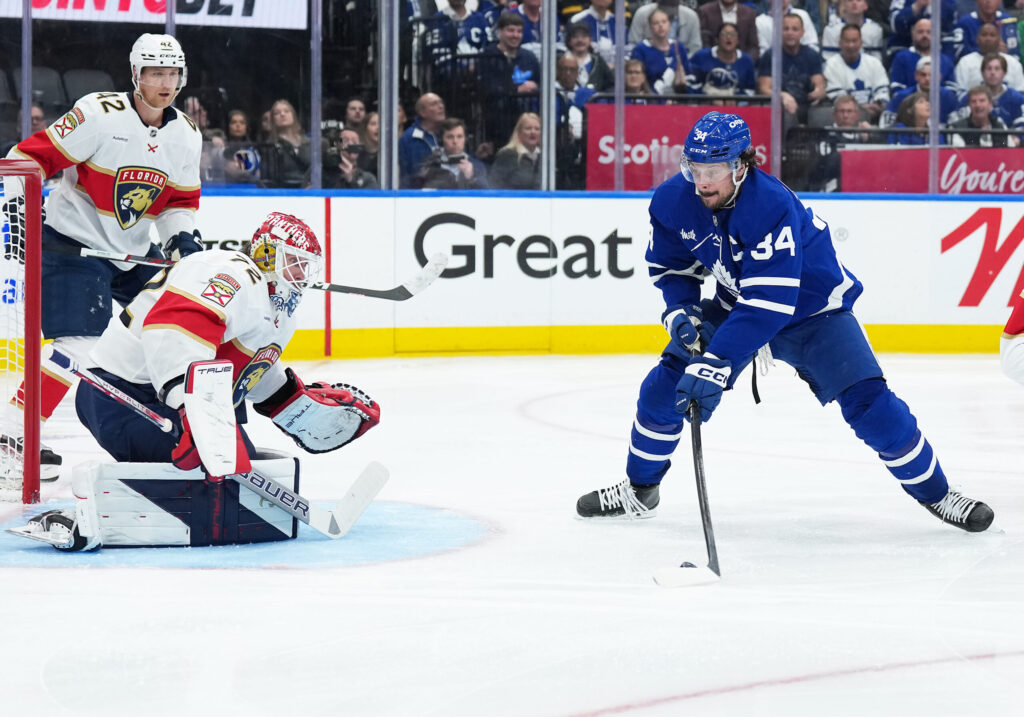
Matthews’s growth into a complete player is a testament to his work ethic and his desire to be the best. Dubas believes that the biggest pressure on Matthews is “internal in trying to be the absolute best.” For Leafs fans, he remains the beacon of hope, the superstar around whom a championship team can still be built.
A Legacy of “What Ifs”
Kyle Dubas’s time in Toronto will always be defined by the “what ifs.” What if the salary cap had continued to rise? What if they had found a way to win just one more playoff round? What if he hadn’t traded Mason Marchment? These are the questions that will linger in the minds of Leafs fans for years to come.
But his recent interview also paints a picture of a thoughtful, self-aware executive who is not afraid to admit his mistakes. He is a man who learned from his experiences, who was shaped by his mentors, and who, despite the ultimate lack of team success, left an indelible mark on the Toronto Maple Leafs. His legacy is a complex one, a tapestry of bold moves, frustrating near-misses, and a constant, unwavering belief in his vision. And as he embarks on a new chapter in Pittsburgh, one thing is certain: Kyle Dubas will continue to be one of the most fascinating and talked-about figures in the hockey world.
Created with the aid of Gemini AI
